Feature
The Importance Of Literature In The Freedom Struggle

Devanshi Jain
August 14, 2018
Literature has played an important role in history. It has been used and is still being used as a tool of propaganda. At the same time, it would be safe to say that literature has played a huge role in pretty much every major revolution in history.
The American Revolution was heavily influenced by pamphlets written by Jonathan Mayhew, John Dickinson and Tom Paine, amongst many others. Tom Paine’s two pamphlets- Common Sense and American Crisis – were read by over a million Americans and is credited with instigating the Declaration of Independence. Similarly, Voltaire, Montesquieu and Rousseau were instrumental in sowing the seeds of the French Revolution.
India is no exception. As we celebrate 71 years of Independence, it would behove us to remember the role of pre-Independence literature in our freedom struggle. Newspapers like Bande Mataram, founded by Bipin Chandra Pal in 1905, Jungantar Patrika founded by Barindra Kumar Ghosh, Abhinash Bhattacharya and Bhupendranath Dutt, 1906, and Harijan founded by Gandhi in 1932 sought to make Indian citizens not only socially and politically aware but also unite them for one common cause. Pamphlets written and distributed across India provided critical information and served as propaganda against the British. However, many intellectuals of the time also considered it important to use fiction and poetry for a patriotic purpose and to create a nationalist discourse.
Bankimchandra Chattopadhyay was one such author who used literature to spread the message of patriotism. In Anandamath (1882), set during the famine in Bengal in 1770 B.C.E., Chattopadhyay highlighted various patriotic acts of and sacrifices made by his characters, ordinary people who left their homes and families to fight against subjection, and in service of “the Mother.” He envisaged an insurgency against the British by untrained soldiers who succeeding in beating the more experienced British soldiers through sheer grit and determination, while embodying a sense of patriotism. The novel was banned by the British and the ban was lifted by the Government of India only after independence. Our national song, Bande Mataram was first published as a poem in this novel as the rallying cry of the characters who used it to give themselves courage and to urge people to fight against the British.
In a case of fact imitating fiction, Bande Mataram served this purpose during the freedom struggle as well. Despite being banned, the general public would recite the poem, or sing the song in front of British officials and many were carted off to jail for doing so. Due to its tradition of sacrifice and its success in bringing a country together against the British, in 1937, the first two verses of Bande Mataram were adopted as the national song by the Indian National Congress.
In 1884, Chattopadhyay published Devi Chaudharani, which became an inspiration to women to take up the cause of independence. In this novel, he reiterated his belief that an armed conflict is the only way to win independence but he made a woman the protagonist and leader of the struggle. Anandamath also featured a strong woman character, and in both books, while women do take up arms, they fight while embodying the values of love.
Chattopadhyay had the foresight to understand that without the cooperation of women, the freedom struggle could not be entirely successful. As Shanti says in Anandamath while making her case to join the cause, “Which hero ever became a hero without the cooperation of his wife?
As Gandhi’s popularity rose, so did his influence with many authors of the time using literature to portray his ideals. Chief amongst these was K.S. Venkatramani who wrote two important novels- Murugan The Tiller (1927) and Kundan, The Patriot (1934)- which dealt with the economic impact of Gandhism and the Civil Disobedience Movement respectively. In Murugan, Venkatramani captures the sacrifices of a village in their struggle for freedom. In Kundan, his protagonist, Raghu, finds himself so enamoured by the Indian freedom struggle and Satyagraha that he joins the movement despite his mother’s angry protest.
Another author influenced by Gandhi was Mulk Raj Anand. In Untouchable, the protagonist, Bakha, a sweeper, spent the day being beaten and treated unjustly merely because of his caste. However, he finds relief when he hears Gandhi’s speech, which gives him hope for a better future. In the speech, Gandhi says that even as “we are asking for freedom from the grip of a foreign nation, we have ourselves, for centuries, trampled underfoot millions of human beings without feeling the slightest remorse of our iniquity.” In his other books, The Village, Across The Black Waters, and The Sword And The Sickle, Anand further explores Gandhian ideology and the freedom struggle.
In Raja Rao’s Kanthapura, a village organises passive resistance against the British in accordance with Gandhi’s philosophy. Kanthapura is a caste-ridden village but everything changes when Moorthy, a Brahmin, discovers Gandhian philosophy. As a result, he begins to wear khaki and fight untouchability. Due to his efforts and those of Rangamma, the educated widow he lives with, the people of Kanthapura begin to believe in Gandhian principles and Gandhi becomes akin to a god to them.
Such portrayal of Gandhian ideology in literature cemented Gandhi’s position as a leader. For those who were dealing with exploitation, Gandhi became a hero who would improve their lot and usher in a new era with a more equal society.
The protagonists of pre-Independence literature were ordinary men and women who joined the freedom struggle and became heroes. They were not intellectuals or even educated. They belonged to different castes and classes, came from different parts of India, and spoke different languages. However, despite their differences, they believed in the same ideology- one which led them to give up everything in the quest for a better quality of life and freedom, with the first step being independence from Britain. As a result, pre-Independence literature was instrumental in uniting people to a common cause.
Do you think literature played an important part in the freedom struggle? Have you read any pre-independence literature? Do you have any recommendations? Share with us in the comments below.
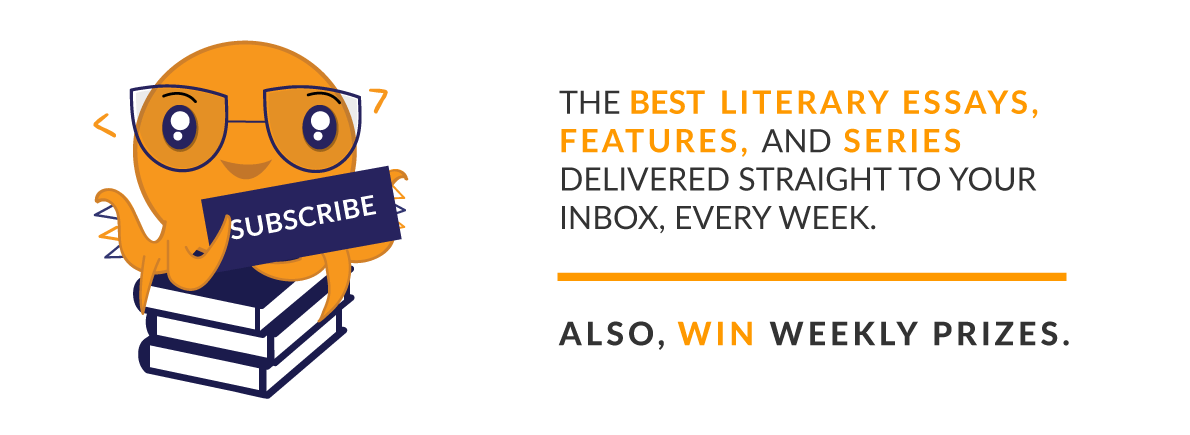

Devanshi Jain
Devanshi has been reading ever since she can remember. What started off as an obsession with Enid Blyton, slowly morphed into a love for mystery and fantasy. Even her choice of career as a lawyer was heavily influenced by the works of Erle Stanley Gardner and John Grisham. After quitting law, and while backpacking around India, she read books on entrepreneurship, taught herself web design and delved into social media marketing. She doesn’t go anywhere without a book.
She is the founding editor of The Curious Reader. Read her articles here.

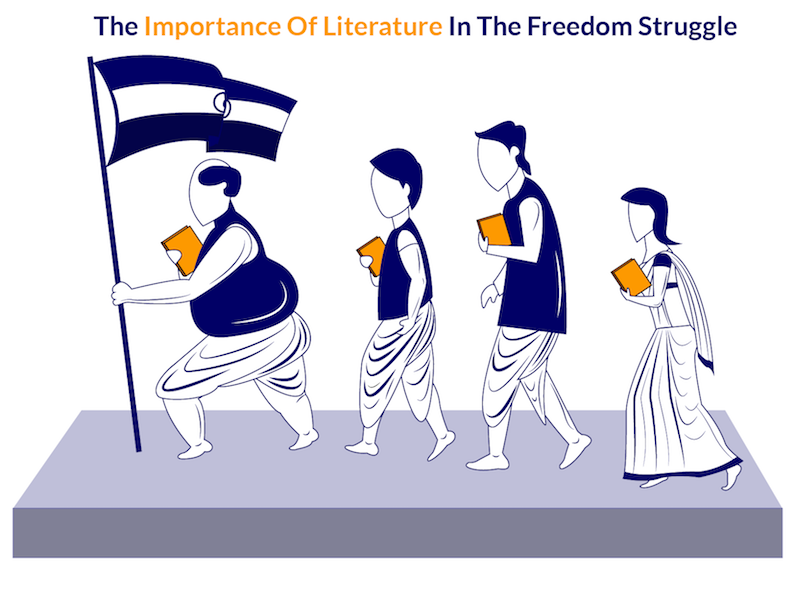

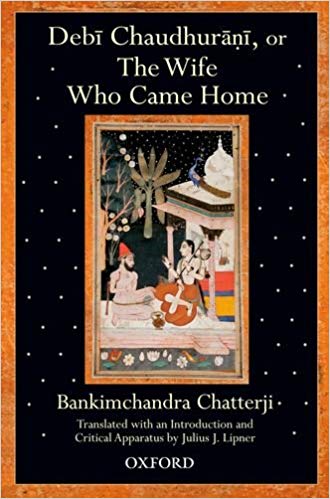
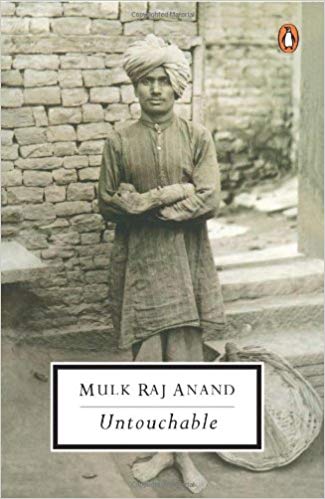
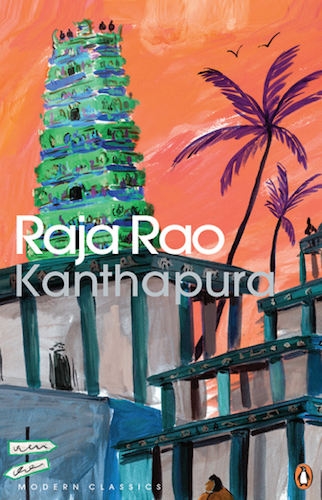

Check your inbox to confirm your subscription
We hate spam as much as you hate spoilers!